|
It is inexplicable and totally predictable. It has been almost exactly two years since I made a post in this Working | blog. What I have been doing is closing down those things that resided on the other side of the "retirement" fence. Composers in retirement. Models.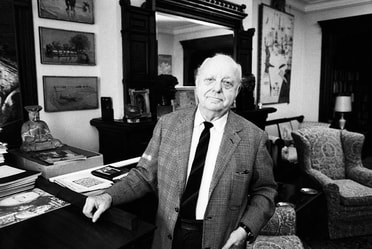 I've been sifting through my memories of aging composers to discern what I observed about the last 20-25% of their days. Here is Virgil Thomson living in the apartment in New York's Chelsea Hotel where he would do "sittings" and musical portraits of colleagues and patrons. He would place himself behind his composing desk and sketch and chat and sip his drink and silently contemplate his model's features and personality. I haven't heard of these works. I'm curious about their quality. I can certainly recognize the impulse to chat for long stretches with people who were near and dear to him (people he could tolerate). Virgil was a Missourian, raised in Kansas City where being homosexual was pretty much not tolerated. Negotiating his place in that universe was a challenge that he tried to solve in Manhattan. I wonder if he ever felt that he found his home. Anywhere. Home Studio. Models.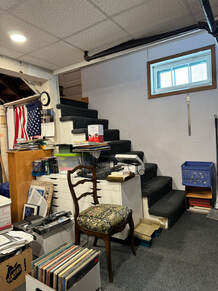 I'm terrible with remembering dates but by my accounting it has been 37 years since my basement was "finished" for human activity. During that time my son used it for about 12-15 years and it devolved into a dust-covered storage space for the rest of the time because I didn't have the time or money to remedy with the storage or the dust. Now I have an opportunity to re-define what I want to include in a home studio. Here's my list of models...
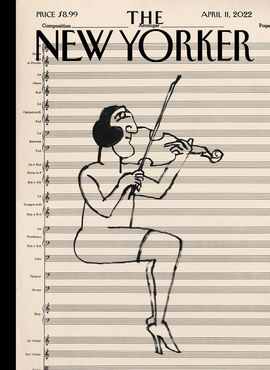 @ 1967 Saul Steinberg @ 1967 Saul Steinberg Quoting from a 1925 recollection by Vilem Tausky in "Leos Janacek: Leaves from His Life" (Vilem & Margaret Tausky, NY, NY: 1982): In Frankfurt there was only one rehearsal for the Concertino, arranged on the morning of the concert, because the members of the theatre orchestra could not be released from the rehearsals for the Festival. Janacek, himself, was present at the rehearsal, as was Dr. Vaclav Stepan Bonka's husband. The rehearsal was very tempestuous, because the members of the orchestra were very tired from constant rehearsing for the festival, and showed no interest in serious study. They evidently underestimated Janacek's work, and not realizing the particular requirements from each player, thought it would be enough to play it through once. The parts, at which they gave a cursory glance, didn't tell them much; they seemed quite simple, so the players felt quite confident. We started to rehearse. The viola player sat relaxed next to me, legs crossed, cigarette dangling; he smoked, and occasionally played something -- the others, similarly. After the first few bars Janacek jumped up and ran over to the unfortunate viola player: "Hey, my dear sir, what do you think you are playing?" -- he stamped, shouted and sang, showing the way it should be played, and the stupefied viola player, by constantly repeating the typical Janacek figures, managed to understand this completely unknown idiom, so that in the end his cigarette fell out of his mouth, and he lost all inclination to smoke. Staring in amazement, his colleagues watched this scene, and I expected now that it would come to an embarrassing and stormy exchange of views. However, the German colleagues, as I noticed later in the rehearsal, were excellent artists, and with their musicianly instinct they recognized that they were playing for a composer of distinction." I received this book from composer Eric Stokes' private library a couple of weeks ago. It doesn't take much for me to imagine Eric reading this caption aloud to an assembled crowd of colleagues, students and friends in the back room of his house. We'd eaten a meal, drunk some wine or beer and each one of us has been asked to read aloud or recite a poem or demonstrate a magic trick for the entertainment of everybody. And then we would play Exquisite Corpse or sing in four-part harmony or tell a progressive ghost story (something that we would all be invited to contribute to). These high points are the things I recall spending time with Eric. I can also imagine Villem Tausky sitting in a back room with Leos, entertaining the assembled. Here's another story.
"All of Chinese music relates to the unchanging Primal Vibration (which is represented dronally as the fundamental tone of the harmonic series). This Primal Note changed through the centuries, so while one could compose Chinese-style music grounded in F (as it was for many centuries), other kingdoms re-measured their world and re-pitched their instruments to G or other notes (thus, the Primal Note changes depending on who is in power!!). The huang chung foundation tone was created by a pipe generating that perfect “yellow tone.” The pipe’s length became the standard unit of Chinese measurement. The Chinese unit of volume was determined by the amount of rice it could contain. The weight of all that rice in the pipe became the standard unit of weight. The volume of the sounding of the pipe’s pitch became the unit of volume. Thus did music become the Holy Grail of Chinese civilization." (Reference of the flutes pictured here can be found at this website.) All cultures may pride themselves that their music is "universal." Plato and Confucius and a hundred other philosophers have argued about the TRUTH in their music. I tend to shy away from find a "truth." But I find inspiration inside different cultures' music theories; it excites my imagination. It is in the collision of theories (between cultures' conceptions of music) that new ideas spark. 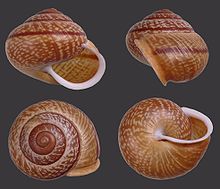 My next post will be about how I prepare ideas to communicate my intentions to performers...and why, whatever I do, performers interpret what they want to see and understand what they want to do, no matter my intentions. That to be a composer in the early 21st Century USA, you must cheerfully give yourself over to the mis-interpretation of your music...and why that is a good thing. |
AuthorComposer-producer-cellist-teacher-executive director of Composers Institute, a Minnesota nonprofit empowering the creative work of musicians in week-long intensive experiences. More info at composersinstitute.org. Archives
April 2024
Categories |
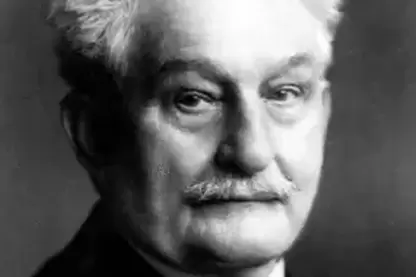
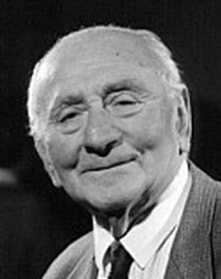
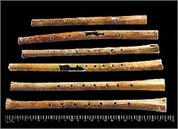
 RSS Feed
RSS Feed